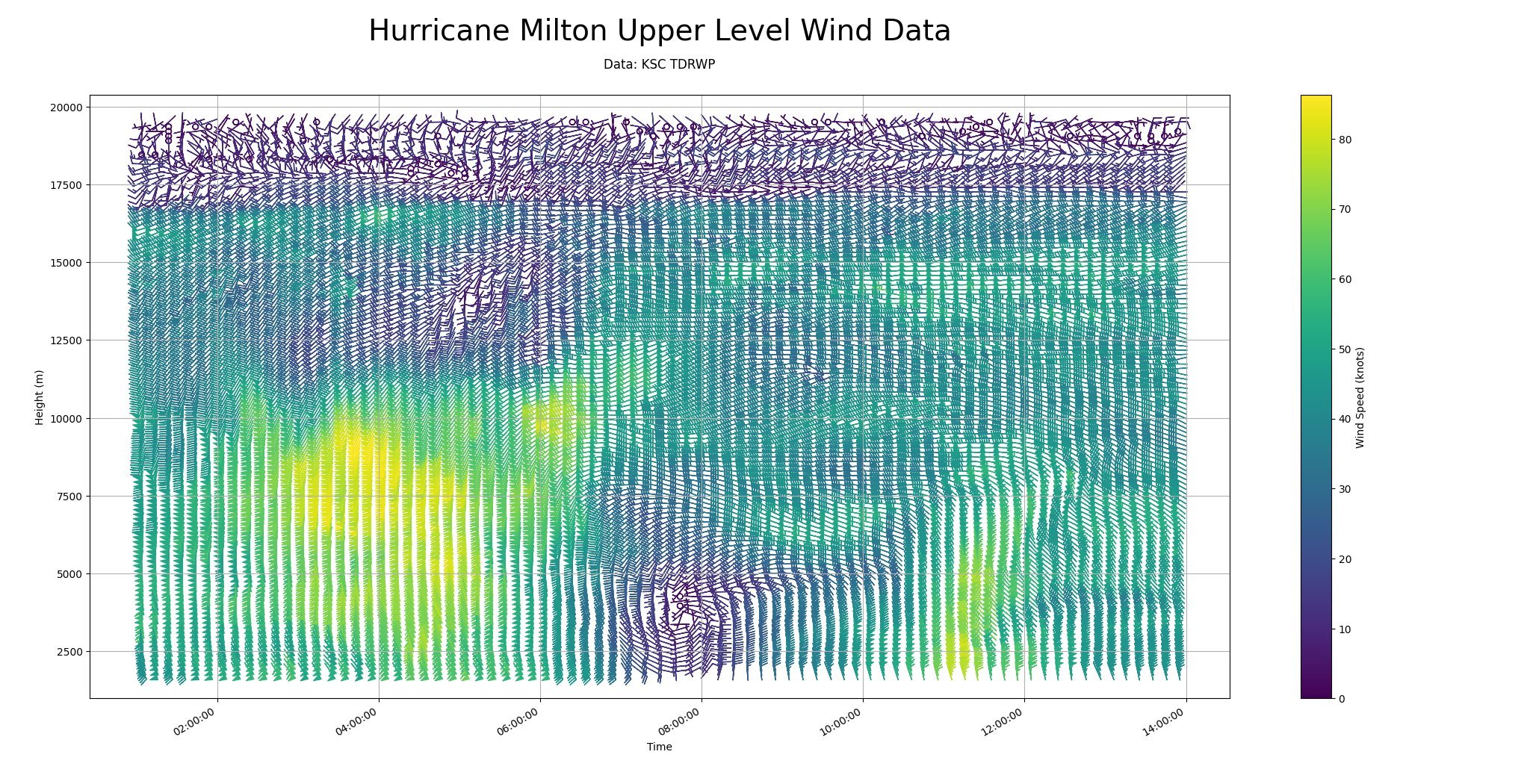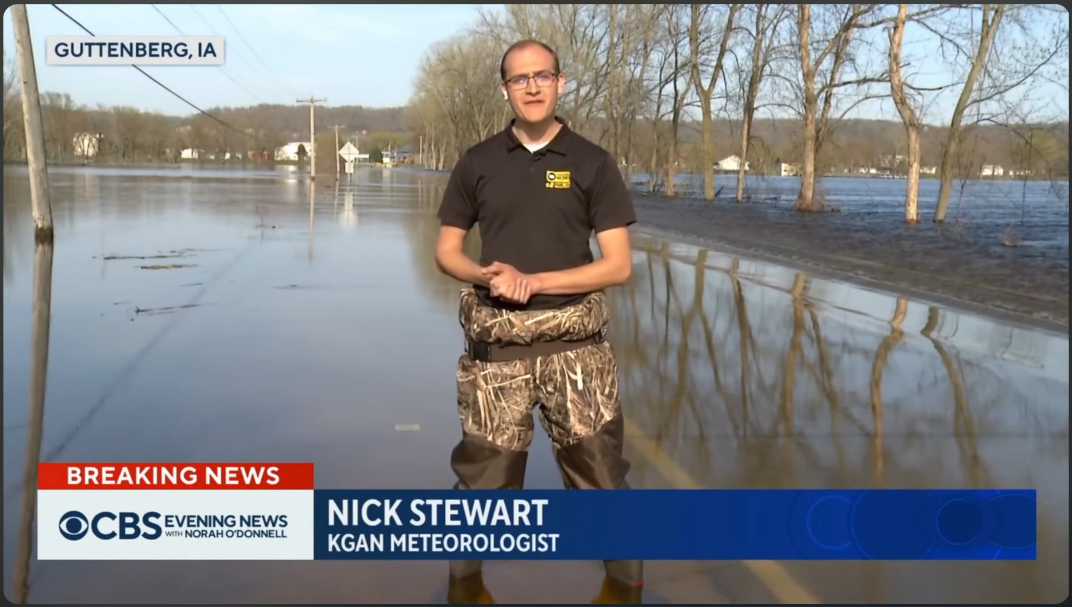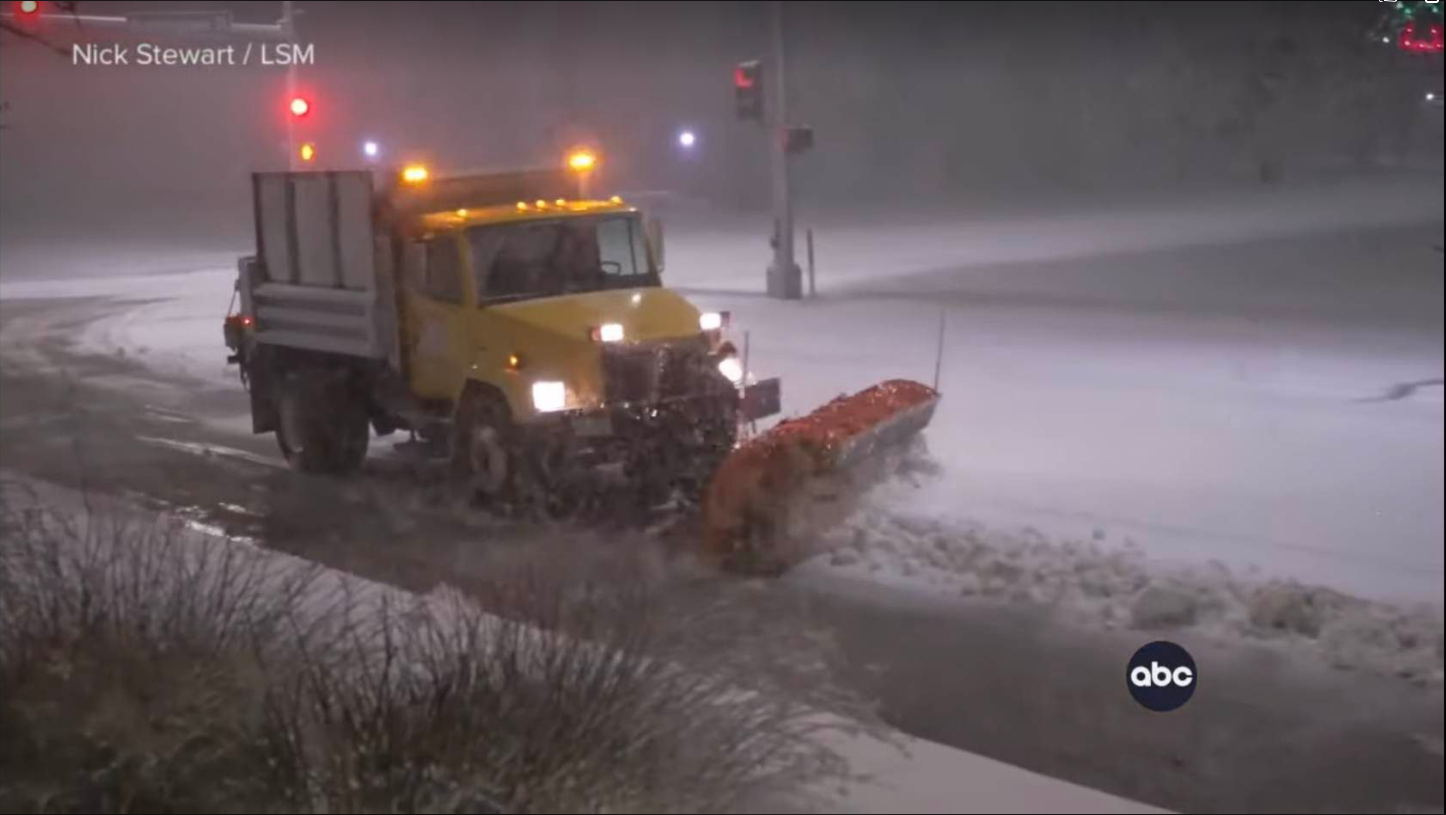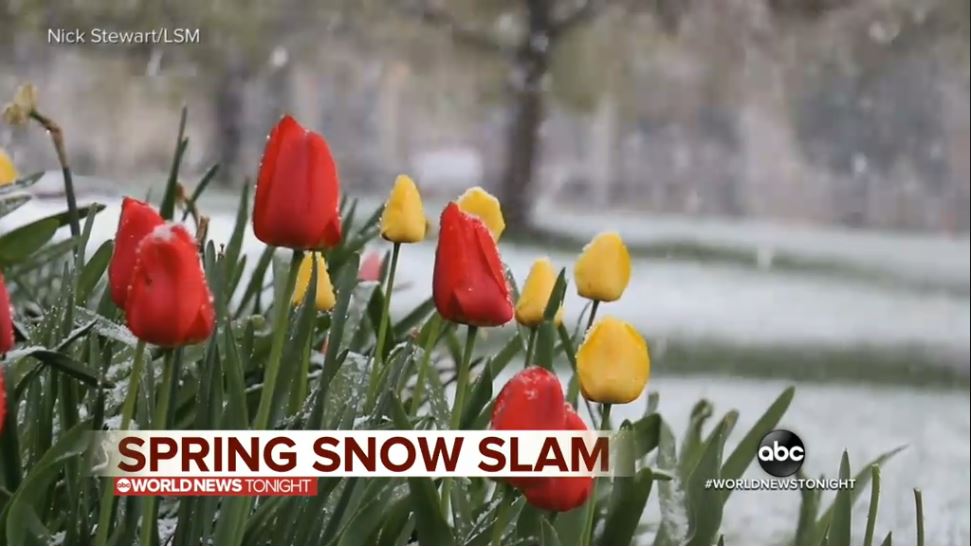Anchor / Producer / Reporter / Graphic Designer / Social Media Specialist
Covering the launch of Artemis I from the Kennedy Space Center in Florida.
DEMO REEL
OTHER LINKS
Resume
Facebook Page
Twitter
YouTube
Meteorologist Nick Stewart
Contact Information
Email: NickStewartWX@gmail.com
Nicholas Stewart is a meteorologist who graduated with a B.S in meteorology from Western Illinois University with a focus on severe weather. Stewart is primarily interested in the research and broadcast side of meteorology. His latest research is looking at a supercell thunderstorm and how it creates its own environment by influencing the near-surface conditions and impacting severe weather parameters.
Stewart has presented his research at several conferences including the 2015 American Meteorological Society annual meeting in Phoenix, Arizona and the 2014, 2015, 2017 and 2021 Severe Storms and Doppler Radar Conference in Ankeny, Iowa.
Stewart has also discussed journalism and past experience defending the First Amendment at the 2015 fall Illinois News Broadcasters Association conference and the 2013 Illinois College Press Association conference.
Aside from research, Stewart is a meteorologist at KGAN/KFXA CBS2/Fox 28 in Cedar Rapids, Iowa (formerly a meteorologist at KHQA in Quincy, Illinois). He is also the station's storm chaser, tracking severe weather in the field. Stewart is the midday weekday and evening field meteorologist. He won the 2021 best Meteorologist award at the Midwest Broadcast Journalist Association.
Stewart is also a freelance photographer. His work has appeared on many major network television channels including NBC, MSNBC, CNN, The Weather Channel, Weather Nation, Fox News and ABC, in addition to countless ABC, NBC, CBS and Fox affiliates.
Coding/Python Graphics
A loop of the severe weather reports in 2024 across the United States. Made in Python, using a CSV data source from the Storm Prediction Center.
A Python plot using MetPy and Barb Plot to create a time series as Hurricane Milton passed over the Kennedy Space Center using the TDRWP, or the Tropospheric Doppler Radar Wind Profiler.
A time-series plot in Python, with a running calculation of standard deviations to project lightning jumps using the 2 Sigma Method, pulling in lightning data from the Cape MERLIN, as the supercell that produced the EF-3 tornado in Fort Pierce, FL developed.
A look at numerous WINDS stations across Cape Canaveral Space Force Station as the strongest part of Hurricane Helene passed over the spaceport.
Plot in Python using the Cape MERLIN lightning data to plot all cloud-to-ground, LF, lightning strikes on a very active thunderstorm day.
Special Weather Reports
The WeatherFirst team presents its newest special, "Marshalltown: In Their Own Words." Live through the July 19,2018 EF-3 tornado that tore a path of destruction right through the center of town. You'll hear from Marshalltown residents on their decisions that kept them alive as the tornado passed overhead, city officials and how they responded in the immediate aftermath and see how the town is recovering two years later.
Rocket and Space News Pieces
NASA’s Artemis I moon rocket launches from Florida
Rural Iowans seeing benefits from SpaceX Starlink internet
Former weather satellite selected for service by Air Force
NASA celebrates UI's accomplishments in Iowa City
‘We now have a plan to return to the moon’ - Landing planned by 2024
SpaceX, NASA launch ‘new era in spaceflight’
NASA 'touching' the Sun, probing for a way to protect Earth
New weather satellite issues persist but forecast improves
'Good science at low cost' - Benefiting from the new space race
The satellite GOES dancing - Weather satellite moves to its new home
Completed University Coursework
Meteorology Requirements
Dynamic Meteorology I (3 hrs.): Examination of atmospheric thermodynamics and cloud processes, including hydrostatic equilibrium, equation of state, atmospheric moisture, adiabatic processes, the use of thermodynamic charts, precipitation development, and lightning mechanisms.
Dynamic Meteorology II (3hrs.): Examination of atmospheric fluid motion, including atmospheric kinematics, real and apparent forces, geostrophic and gradient winds, thermal winds, vorticity, quasigeostrophy, and their application to numerical weather prediction.
Synoptic Meteorology I (3 hrs.): Study of large-scale (synoptic) atmospheric circulations and the relationship between upper air circulation, vertical motion, and surface development, particularly cyclogenesis. Emphasis on weather analysis through observational data and computer models.
Synoptic Meteorology II (3 hrs.): Quantitative treatment of dynamical and thermodynamical processes involved in synoptic meteorology. Evolution of fronts and cyclones, isentropic analysis, vertical cross sections, interpretation of satellite imagery and numerical model data, all in the context of theory and case studies.
Natural Hazards (3 hrs.): Examination of the causes, development, and impact of different natural hazards around the world. Hazards range from volcanoes and earthquakes to hurricanes, tornadoes, floods, and fires. Understanding community responses to particular disasters, including planning, first responses, and lessons learned.
Severe and Unusual Weather (2 hrs.): Study of severe weather causes and impacts on local communities. Apply current technologies and data sources to analyze winter weather events (blizzards, ice storms, etc.) and warm season events (thunderstorms, tornadoes, hail, lightning, floods, hurricanes).
Meteorological Data Analysis (3 hrs.): Various meteorological data analysis software packages will be used to enhance synoptic/dynamics concepts learned in concurrent courses. These tools will be used to produce and present an analysis of a meteorological case study.
Physical Meteorology (3 hrs.): Examination of atmospheric radiation and chemistry, including optical effects, acoustical phenomena, tropospheric and stratospheric chemical processes, and how these disciplines combine to determine Earth’s radiative equilibrium.
Principles of Meteorological Instruments (3 hrs.): A survey of the instruments and reporting techniques associated with standard weather observations, leading to the ability to identify meteorological phenomena and report their occurrences in an understandable format.
University Physics I (4 hrs.): Motion, Newton’s laws, forces, momentum, energy, work, rotation, and simple harmonic motion. (Laboratory session)
University Physics II (4 hrs.): Kinetic theory, thermodynamics, wave motion, sound, optics. (Laboratory session)
Ordinary Differential Equations (3 hrs.): Elementary theory and applications of ordinary differential equations including linear equations of first and second order and linear systems.
Oceanography (3 hrs.): History of ocean exploration, origin and nature of ocean basins, composition and circulation of ocean water, modern developments in oceanography, man and the oceans.
Environmental Climatology (3 hrs.): This course deals with the mechanisms of heat flow, radiation exchanges, and water vapor flux and with the effects of climate on organisms, ecosystems, and human societies as well as changes in global environment.
Cartographic Design for GIS (3 hrs.): An introduction to basic cartographic principles and design techniques necessary for Geographic Information System (GIS) map production.
Emergency Management Requirements
Hazards and Disasters in Emergency Management (3 hrs.): Overview of the dynamic relationships between natural and technological hazards and disasters and associated requirements for mitigation, preparation, response, and recovery.
Principles of Emergency Management (3 hrs.): Presents the theories, principles, and approaches to emergency management. Philosophy of comprehensive emergency management will be discussed including mitigation, preparedness, response, and recovery. Role, duties, and importance of the emergency manager will be discussed.
Dimensions of Disaster (3 hrs.): Overview of empirical vs. theoretical approaches to disasters; human behavior in disaster, disaster myths; group disaster behavior; community social systems and disaster; cultures, demographics and disaster behavior distinctions, and contemporary disaster research.
Business and Industry Emergency Management (3 hrs.): Provides an analysis of governmental emergency management, legal requirements, employee and business disaster awareness and preparedness, public policy considerations, and coordination of community outreach.
Introduction to Public Administration (3 hrs.): Policy development and the implementation by governmental agencies; the exercise of discretion by administrative bodies, their responsibility to elected public officials, and their responsiveness to societal demands.
AS SEEN ON…
The Weather Channel with the Fort Pierce, FL EF-3 tornado.
Ryan Hall Y’all with the Fort Pierce, Florida Tornado.
CBS Weekend News ahead of Hurricane Debby’s landfall in Florida.
Live Storm Chasing video of Hurricane Debby provided to ActionJax News in Jacksonville, Florida.
ABC’s Good Morning America as an EF-0 tornado strikes Melbourne, Florida.
Fox Weather as lightning sparks wildfire near the Kennedy Space Center.
Ryan Hall Y’All Stream covering wildfire near Kennedy Space Center.
The Weather Channel covering a large wildfire near Kennedy Space Center.
Northern Lights Subject Matter Expert for LiveNOW from Fox News.
CBS Evening News with Norah' O’Donnell.
ABC’s Good Morning America
The Weather Channel and Weather.com
ABC’s Good Morning America
NBC’s Today
ABC World News Tonight
ABC’s Good Morning America
NBC’s Nightly News
CBS Evening News
Fox Weather
ABC’s Good Morning America
The Weather Channel’s AM Edition, and Weather.com
ABC’s World News Tonight
NBC’S Nightly News
Good Morning America
ABC’s Good Morning America
ABC’s World News Tonight
AccuWeather
CBS’s Weekend News
ABC’s Good Morning America
CBS This Morning
NBC’s Today
NBC’S Today
The Weather Channel
ABC’S World News Tonight
CBS This Morning
CBS News
ABC’s Good Morning America









































